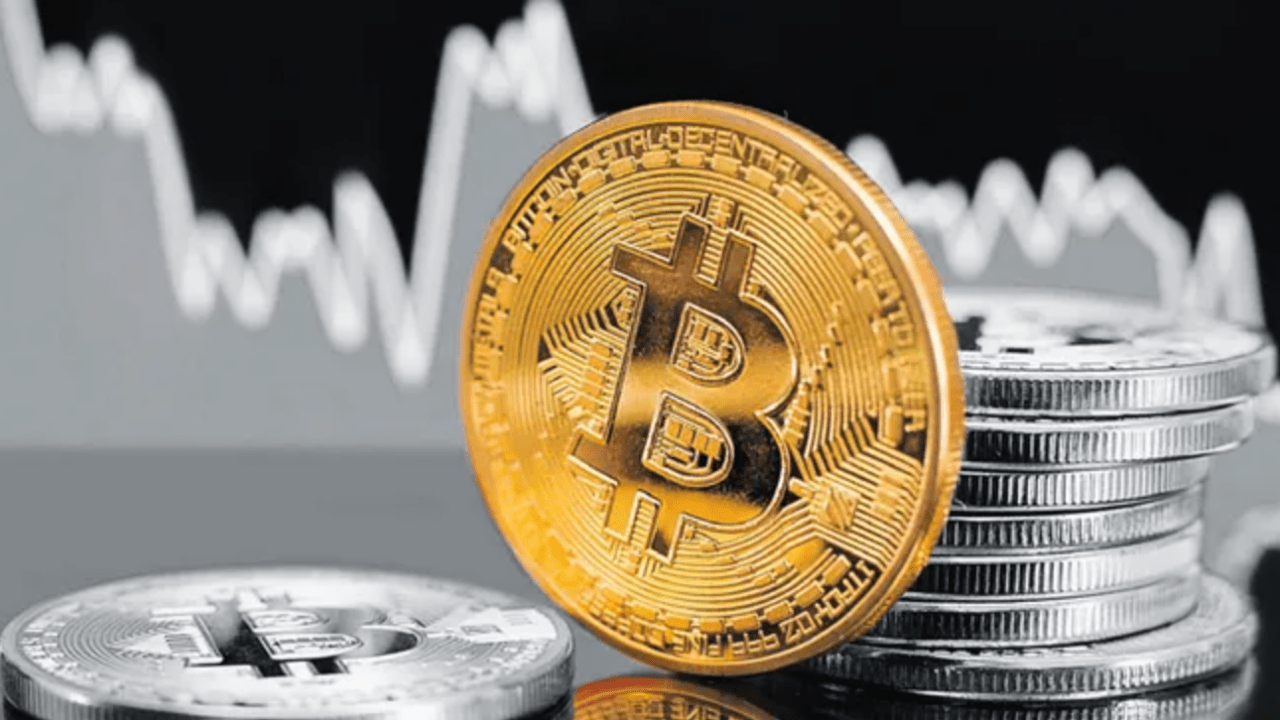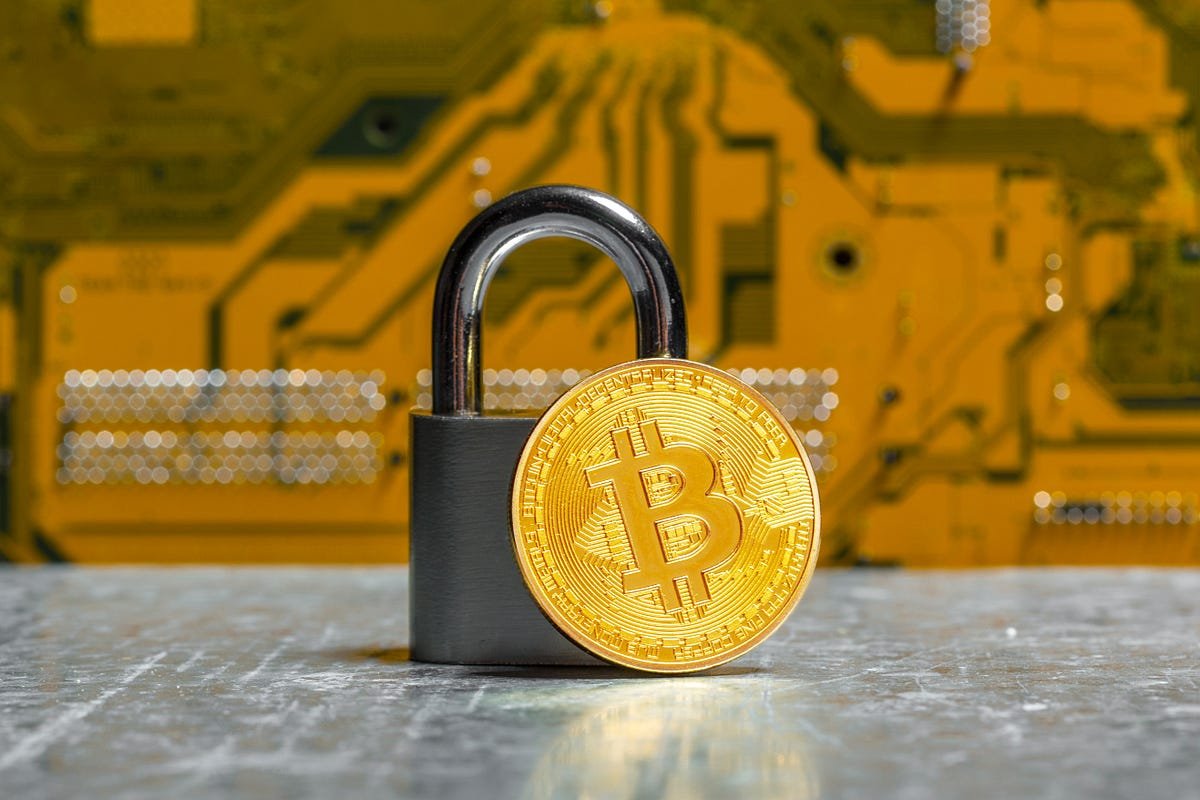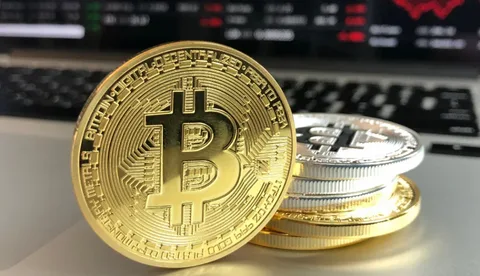With cryptocurrency markets evolving rapidly and security threats becoming more sophisticated, understanding how to buy bitcoin safely news has never been more critical for investors. Recent developments in cryptocurrency regulations, exchange security breaches, and emerging scam tactics make it essential to stay informed about the latest safety protocols when purchasing Bitcoin. This comprehensive guide combines the most current news about Bitcoin security with proven strategies to protect your investments from the moment you decide to buy until your coins are safely stored.
The cryptocurrency landscape has witnessed significant changes in 2025, with new regulatory frameworks, enhanced security measures, and unfortunately, more sophisticated fraud attempts. Whether you’re a first-time buyer or an experienced investor looking to update your security practices, this guide provides the latest information on how to buy bitcoin safely while staying ahead of emerging threats and market developments.
Understanding Bitcoin Security Fundamentals
What Makes Bitcoin Purchases Risky
Bitcoin transactions are irreversible, making security paramount when purchasing cryptocurrency. Unlike traditional banking systems, there’s no central authority to reverse fraudulent transactions or recover lost funds. This fundamental characteristic of Bitcoin, while providing financial freedom, also places the entire responsibility of security on individual users.
Recent security incidents have highlighted common vulnerabilities in the Bitcoin buying process. Phishing attacks targeting exchange users have increased by 40% in 2025, while fake exchange platforms and fraudulent wallet applications continue to proliferate across app stores and search engine results.
Current Bitcoin Market Security Landscape
The Bitcoin security environment has evolved significantly, with both improvements in legitimate platform security and advancement in criminal tactics. Major exchanges now implement multi-layered security protocols, including cold storage solutions, insurance coverage, and advanced fraud detection systems.
However, regulatory changes across different jurisdictions have created a complex landscape for Bitcoin purchases. Some regions have implemented stricter Know Your Customer (KYC) requirements, while others have banned cryptocurrency transactions entirely, forcing users toward potentially unsafe alternatives.
How to Buy Bitcoin Safely: Step-by-Step Process
Choosing a Reputable Exchange Platform
Selecting a trustworthy exchange is the foundation of safe Bitcoin purchasing. Established platforms like Coinbase, Binance, and Kraken have built robust security infrastructures and maintain regulatory compliance across multiple jurisdictions. These platforms offer insurance protection for user funds and implement advanced security measures including two-factor authentication (2FA) and cold storage solutions.
When evaluating exchanges, consider their regulatory status, security track record, insurance coverage, and user reviews. Avoid newly launched platforms without established security protocols or those operating without proper regulatory oversight. Research the exchange’s history of security incidents and their response to previous breaches.
Verifying Exchange Legitimacy
Before creating an account on any exchange, verify its legitimacy through multiple sources. Check regulatory databases, read independent security audits, and examine the platform’s terms of service for red flags. Legitimate exchanges typically display their regulatory licenses prominently and provide transparent information about their security measures.
Look for exchanges that publish regular security audits, maintain bug bounty programs, and have established partnerships with reputable financial institutions. Avoid platforms that promise unrealistic returns, lack proper customer support, or have unclear ownership structures.
Setting Up Secure Account Protection
Account security begins with creating strong, unique passwords and enabling two-factor authentication. Use hardware-based 2FA devices when possible, as they provide superior security compared to SMS-based authentication. Many security experts recommend authenticator apps over SMS due to SIM swapping vulnerabilities.
Configure account notifications for all login attempts, transactions, and security changes. This enables immediate detection of unauthorized access attempts. Most reputable exchanges offer granular notification settings that allow users to monitor all account activities in real-time.
Latest News and Security Updates for Bitcoin Buyers

Recent Exchange Security Developments
The cryptocurrency exchange industry has implemented several new security measures in 2025. Major platforms have adopted advanced AI-driven fraud detection systems that can identify suspicious trading patterns and potential account takeovers before they result in losses.
Multi-signature wallet integration has become standard among leading exchanges, requiring multiple cryptographic signatures before executing large transactions. This technology significantly reduces the risk of unauthorized transfers, even if individual account credentials are compromised.
Regulatory Changes Affecting Bitcoin Purchases
Global regulatory developments continue to shape the Bitcoin buying landscape. The European Union’s Markets in Crypto-Assets (MiCA) regulation has established comprehensive security requirements for cryptocurrency exchanges operating within EU jurisdictions. These regulations mandate strict security protocols, insurance coverage, and regular security audits.
In the United States, the Securities and Exchange Commission has increased oversight of cryptocurrency exchanges, resulting in enhanced security requirements and better consumer protections. These regulatory improvements have made it safer to buy Bitcoin through compliant platforms, though they’ve also increased verification requirements for new users.
Emerging Threats and Security Concerns
Cybercriminals have developed more sophisticated attack methods targeting Bitcoin buyers. Deepfake technology is now being used to create convincing fake video testimonials for fraudulent platforms. Additionally, AI-powered phishing campaigns can generate personalized attack emails that are increasingly difficult to distinguish from legitimate communications.
Social engineering attacks have become more targeted, with scammers researching potential victims through social media to create highly convincing impersonation attempts. These attacks often involve fake customer support contacts or investment advisors who gain victims’ trust over extended periods before executing fraud.
Secure Payment Methods for Bitcoin Purchases
Bank Transfer Security Best Practices
Bank transfers remain one of the safest payment methods for Bitcoin purchases when used correctly. Use official banking applications or websites rather than clicking links in emails or messages. Verify all transaction details multiple times before confirming transfers, and maintain records of all transactions for security monitoring.
Enable banking notifications for all outbound transfers, regardless of amount. This provides immediate alerts if unauthorized transfers are attempted. Many banks now offer cryptocurrency-specific security features that can flag unusual transactions to exchanges.
Credit Card and Debit Card Considerations
While convenient, card payments for Bitcoin purchases carry additional risks and costs. Card transactions are often processed through multiple intermediaries, creating additional points of potential compromise. However, credit cards offer better fraud protection compared to debit cards, as they don’t directly access your bank account.
Some card issuers have implemented cryptocurrency purchase blocks or require additional verification for such transactions. Contact your card issuer before making Bitcoin purchases to understand their policies and ensure your transactions won’t be declined or flagged as fraudulent.
Alternative Payment Methods and Their Risks
Peer-to-peer payment platforms like PayPal, Venmo, or Cash App offer convenience but limited fraud protection for cryptocurrency purchases. These platforms often prohibit cryptocurrency transactions, and users who violate these terms may face account restrictions or closures.
Cash transactions for Bitcoin purchases carry significant security risks and should generally be avoided. Meeting strangers for cash transactions creates personal safety concerns, and cash payments offer no recourse if the Bitcoin transfer doesn’t occur as agreed.
Wallet Security for New Bitcoin Buyers
Hardware Wallets vs Software Wallets
Hardware wallets represent the gold standard for Bitcoin security, storing private keys offline and requiring physical confirmation for transactions. Popular hardware wallet manufacturers like Ledger and Trezor have continuously improved their security features and user interfaces to accommodate both beginners and advanced users.
Software wallets offer greater convenience for frequent transactions but require careful security management. Mobile wallets should only be downloaded from official app stores, and users should verify the developer’s identity before installation. Desktop wallets provide more control over security settings but require regular security updates and malware protection.
Private Key Management Best Practices
Your Bitcoin private keys are essentially the ownership proof for your cryptocurrency. Never share private keys with anyone, and store backup copies in multiple secure locations. Write down seed phrases on paper rather than storing them digitally, as digital storage creates additional attack vectors.
Consider using metal backup solutions for long-term storage of seed phrases, as they provide protection against fire, water, and other physical damage. Test your backup recovery process regularly to ensure you can access your Bitcoin if your primary wallet becomes unavailable.
Multi-Signature Security Implementation
Multi-signature wallets require multiple private keys to authorize transactions, providing enhanced security for larger Bitcoin holdings. This technology distributes risk across multiple devices or locations, preventing single points of failure from compromising your entire Bitcoin balance.
Setting up multi-signature security requires technical knowledge but significantly improves security for serious Bitcoin investors. Many wallet providers now offer user-friendly multi-signature solutions that simplify the setup and management process.
Red Flags and Scam Prevention
Identifying Fraudulent Exchanges and Platforms
Fraudulent platforms often use sophisticated marketing and professional-looking websites to attract victims. Be suspicious of platforms offering guaranteed returns, extremely low fees, or pressure tactics encouraging immediate deposits. Legitimate exchanges compete on security, features, and reliability rather than unrealistic promises.
Check for proper SSL certificates, professional customer support, and transparent fee structures. Fraudulent platforms often have poor grammar in their communications, lack proper legal documentation, or use high-pressure sales tactics to encourage quick decisions.
Social Media and Investment Scam Recognition
Social media platforms have become breeding grounds for Bitcoin investment scams. Be extremely cautious of investment opportunities promoted through social media, especially those featuring celebrity endorsements or “get rich quick” promises. Legitimate investment opportunities don’t require immediate action or secrecy.
Scammers often create fake social media profiles impersonating cryptocurrency experts, celebrities, or successful traders. Always verify the authenticity of social media accounts through multiple sources before engaging with investment-related content or recommendations.
Phishing Attack Prevention Strategies
Phishing attacks targeting Bitcoin users have become increasingly sophisticated, often perfectly mimicking legitimate exchange websites and communications. Always navigate to exchange websites by typing the URL directly rather than clicking links in emails or messages.
Enable email notifications for all account activities and verify the sender’s authenticity for any cryptocurrency-related communications. Be particularly suspicious of urgent messages claiming security breaches, limited-time offers, or required immediate action.
Legal and Regulatory Considerations
Understanding Local Bitcoin Regulations
Bitcoin regulations vary significantly across different jurisdictions, and compliance is essential for both legal protection and security. Some countries require cryptocurrency exchanges to implement specific security measures and maintain user fund insurance, while others have banned cryptocurrency transactions entirely.
Research your local cryptocurrency laws before making Bitcoin purchases, as regulations can affect which exchanges you can legally use and what security protections are available. Some jurisdictions offer better consumer protections through licensing requirements and regulatory oversight.
Tax Implications and Record Keeping
Proper record keeping for Bitcoin purchases is essential for both tax compliance and security monitoring. Maintain detailed records of all purchases, including dates, amounts, exchange rates, and platform fees. Many countries treat Bitcoin as taxable property, requiring capital gains calculations for all transactions.
Use cryptocurrency tax software or maintain spreadsheets to track your Bitcoin acquisition costs and transaction history. This documentation also helps identify unauthorized transactions and provides evidence for insurance claims if security breaches occur.
Reporting Suspicious Activities
If you encounter fraudulent platforms, phishing attempts, or other suspicious activities related to Bitcoin purchases, report them to appropriate authorities. Many countries have established cryptocurrency fraud reporting mechanisms through their financial regulatory agencies.
Reporting scams helps protect other potential victims and assists law enforcement in tracking cryptocurrency-related crimes. Keep records of any suspicious communications or websites for potential use in investigations.
Advanced Security Measures for Bitcoin Buyers
VPN Usage for Exchange Access
Using a Virtual Private Network (VPN) when accessing cryptocurrency exchanges adds an additional layer of security, especially when using public Wi-Fi networks. VPNs encrypt your internet traffic and can help protect against man-in-the-middle attacks that could compromise your exchange credentials.
Choose reputable VPN providers with strong encryption protocols and no-logging policies. Some exchanges may restrict access from certain countries, so ensure your VPN provider offers servers in locations where your chosen exchange operates legally.
Security Auditing and Monitoring Tools
Several tools can help monitor your Bitcoin security and detect potential threats. Portfolio tracking applications often include security monitoring features that can alert you to unauthorized transactions or account access attempts.
Consider using cryptocurrency security services that monitor the dark web for compromised credentials related to your accounts. These services can provide early warning if your information appears in data breaches affecting other platforms.
Regular Security Updates and Reviews
Cryptocurrency security is an ongoing process requiring regular attention and updates. Schedule monthly reviews of your security practices, including password updates, software patching, and backup verification. The rapidly evolving threat landscape requires continuous adaptation of security measures.
Stay informed about security developments in the cryptocurrency community through reputable news sources and security researchers. Subscribe to security advisories from your exchange platforms and wallet providers to receive immediate notifications about potential threats.
Also Read: Bitcoin Treasury Management Services Complete Guide for Enterprises 2025
Building Long-Term Bitcoin Security Habits

Establishing Security Routines
Develop consistent security routines for all Bitcoin-related activities. This includes regular password updates, backup verification, and security setting reviews. Consistent habits reduce the likelihood of security oversights that could compromise your Bitcoin holdings.
Create checklists for common Bitcoin activities like making purchases, transferring funds, or updating software. These checklists help ensure you follow security protocols consistently, even during stressful or time-sensitive situations.
Continuous Education and Awareness
The cryptocurrency security landscape evolves rapidly, requiring ongoing education to maintain effective protection. Follow reputable cryptocurrency security experts and organizations to stay informed about emerging threats and best practices.
Participate in cryptocurrency communities that prioritize security education and share experiences with other Bitcoin users. This collective knowledge sharing helps identify new threats and effective countermeasures.
Emergency Response Planning
Develop plans for potential security incidents, including compromised accounts, lost devices, or suspected fraud. Know how to quickly contact your exchange’s customer support, freeze accounts if necessary, and report incidents to relevant authorities.
Maintain current contact information for all cryptocurrency-related services and keep emergency contact lists easily accessible. Test your emergency procedures regularly to ensure they work when needed.
Future of Bitcoin Security and Safety Measures
Emerging Technologies and Security Improvements
The Bitcoin ecosystem continues to develop new security technologies that will make purchases safer for average users. Quantum-resistant cryptography development addresses future security concerns, while improved user interface design makes security features more accessible.
Biometric authentication integration in hardware wallets and exchange platforms provides additional security layers that are difficult for attackers to replicate. These technologies will likely become standard features in the coming years.
Regulatory Evolution and Consumer Protection
Regulatory frameworks for cryptocurrency continue to mature, generally resulting in improved consumer protections and security requirements for service providers. This evolution typically leads to better security standards across the industry, though it may also introduce new compliance requirements for users. International cooperation on cryptocurrency regulation is improving, which should help combat cross-border cryptocurrency crimes and provide better recourse for victims of fraud.
Conclusion
Learning how to buy bitcoin safely news requires staying informed about the latest security developments while implementing proven protection strategies. The cryptocurrency landscape continues to evolve rapidly, with new opportunities and risks emerging regularly. By following the comprehensive security practices outlined in this guide, you can significantly reduce your risk exposure while participating in the Bitcoin ecosystem.
The key to safe Bitcoin purchasing lies in combining current security best practices with continuous education about emerging threats and protection technologies. Stay informed about how to buy bitcoin safely news through reputable sources, and regularly review and update your security measures to address new challenges.

